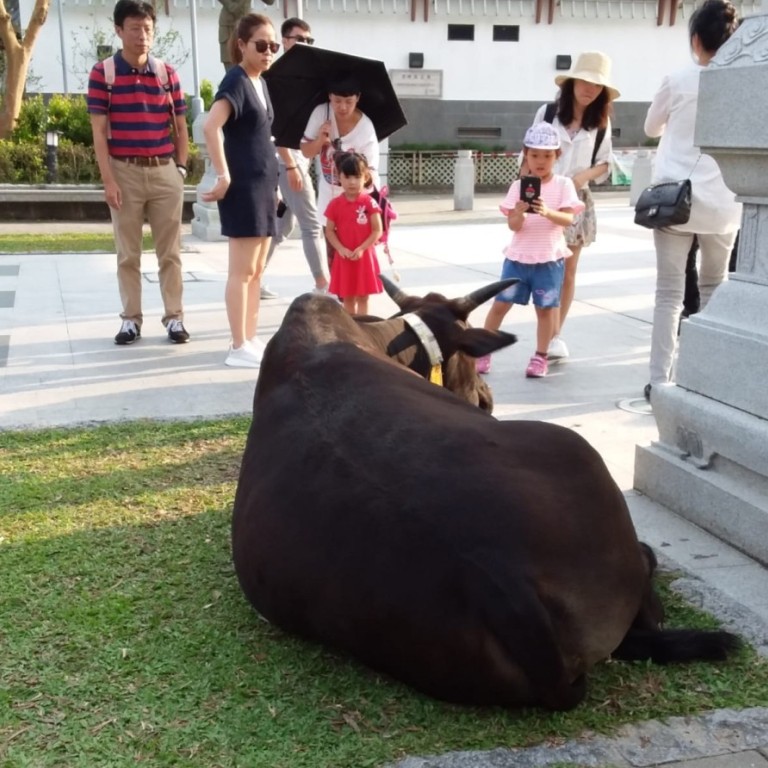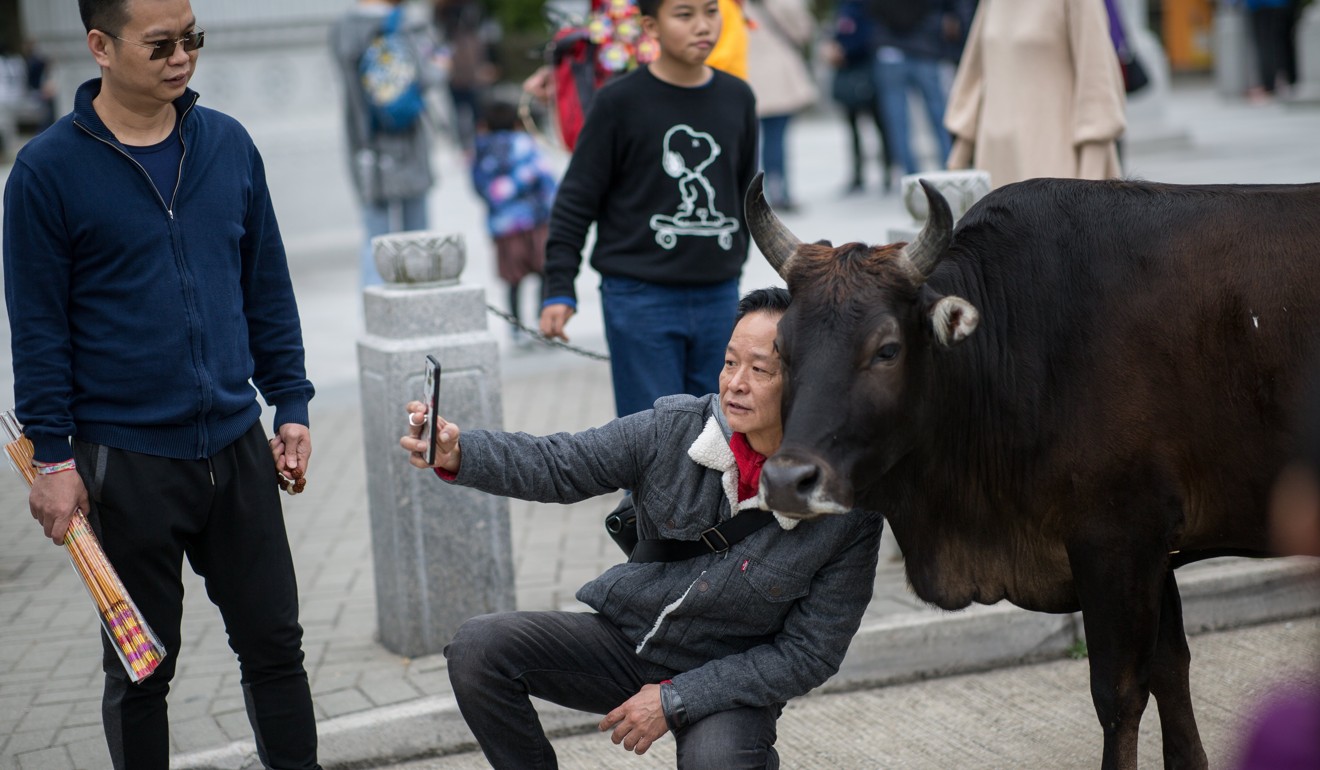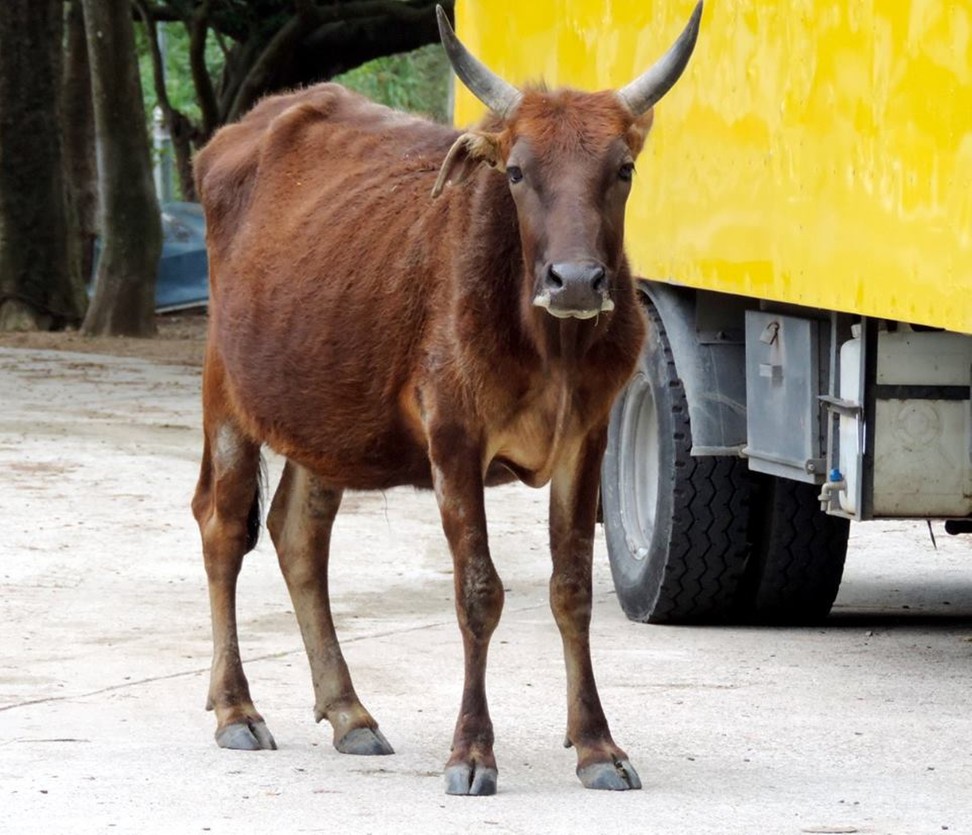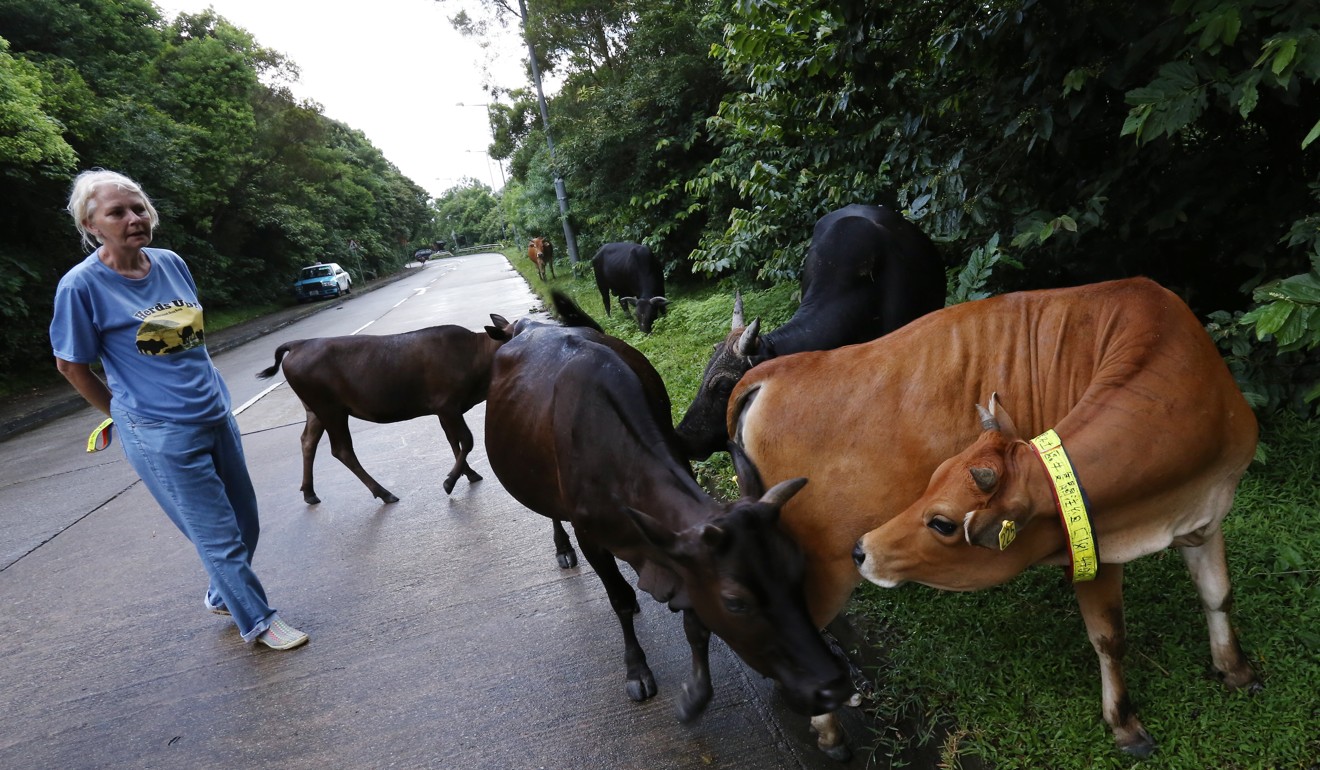
Increased tourist numbers from new bridge are worsening the feeding problems for Lantau’s feral cattle
- Animal activist groups say visitors to the tourist site Ngong Ping are joining residents in feeding the free-roaming cattle unsuitable food
- In the absence of proper signs, the cows could meet the same fate as Billy, a bull who died from ingesting plastic bags in November
The opening of the mega cross-border bridge has worsened the problem of feral cattle consuming human food and plastic bags with more visitors joining local residents in feeding the animals in a tourist area near the link’s checkpoint on Lantau Island, say activists.
Public concern with the health of free-roaming cattle in Hong Kong was heightened after Billy, a bull known to live on Pui O beach, Lantau, was found dead in November. He was believed to have died from a congested digestive tract with enough plastic bags to fill two buckets found in his stomach.
Kathy Daxon, who chairs the Tai O Community Cattle Group, said locals and tourists continued to feed cattle in Ngong Ping, a tourist area housing the famed Big Buddha and a cable car.

“The problem got worse after the bridge opened,” Daxon said, referring to the rise in the number of people visiting Ngong Ping following the opening of the Hong Kong-Zhuhai-Macau Bridge to traffic on October 24.
According to the Ngong Ping 360, which operates the cable car linking Po Lin Monastery and Tung Chung, the number of riders increased by 20 per cent in November, after the bridge opened.
She said the public should not feed the cattle as they graze on grass and leaves in the area.
“People do not realise that if a cow gets sick, it might be put down,” she added.
Without proper signs at Ngong Ping, Daxon said visitors and locals feed cattle human food like apples, bread, cake, sausages and chicken meat, all of which may endanger the animals’ health.
In some cases, she said people might drop a bag of food when a cattle approached, leaving the animal to eat both the plastic bag and its contents.
Car rams into small herd of cattle in Hong Kong, leaving one cow dead

Though volunteers had tried to stop people from feeding the cattle, Daxon said it was not always effective as some were reluctant to do so.
Daxon also said there was no point in relocating the cattle, as they would only return knowing food could be found at the plaza.
Beloved Pui O bull found dead with stomach full of plastic bags
Daxon said that, to alleviate the issue, visitors and locals should be educated and learn not to feed the cows.
Should the problem continue, Daxon said, more cattle will suffer the same fate as Billy.
Ho Loy, chairwoman of the Lantau Buffalo Association chairwoman, agreed that there was inadequate signage.

“No one is interested in looking at the few banners they put up,” Ho said.
Apart from educating the visitors, Ho said it was important for the government to step up waste management in the area, so as to make human food and waste inaccessible to cattle.
Ho also said the government had instructed tour guides to stop visitors from feeding the animals, but that this did not always work.
Hikers asked to file ‘missing’ cow reports
The Agriculture, Fisheries and Conservation Department said it had employed four herders on Lantau to drive cattle away from “black spots” where the animal was likely to be disturbed.
The department said feeding the cattle may lead to it develop the habit of obtaining food from humans, instead of finding its own.
“If members of the public encounter cattle, they should not disturb, approach, make noise, or throw objects at them,” the department said.

